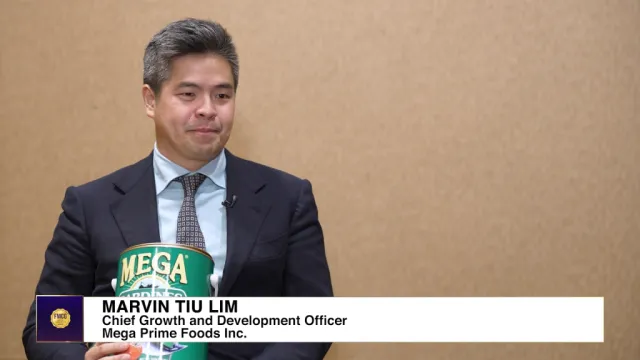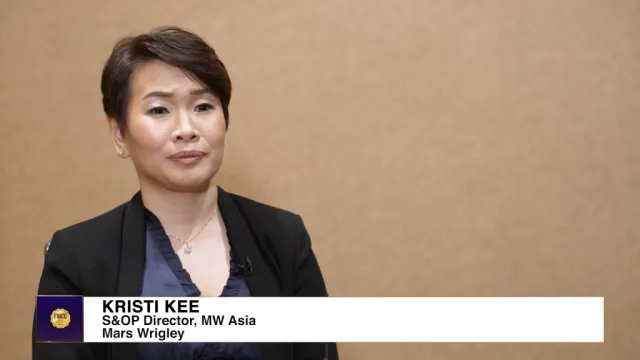
Companies should rebuild supply chain, business models around consumers’ lives, says EY leader
The FMCG sector needs to focus on positive impacts in products and services to appeal to an increasingly eco-conscious population.
Atul Chandna is currently EY Asia-Pacific’s Supply Chain Leader and EY Asean Consumer Consulting Leader. He had supported numerous local and multinational clients, from conceptualisation to the final delivery of large-scale turnaround programs, including business strategy, process re-engineering, and technology architecting.
He possesses a deep knowledge of sales and supply chain functions in the Asia-Pacific region's consumer goods, retail, and chemicals sectors.
Chandna has also spearheaded innovation engagements on the adoption of digital supply chain ideas and brought them to life with prototypes that incorporate robotic process automation, analytics, mobility, and artificial intelligence. He has also led many advanced supply chain analytics and process consulting initiatives and designed and implemented supply chain control towers in Europe and the Asia Pacific.
In response to how the fast-moving consumer goods (FMCG) industry looks today, Chandna mentioned how the supply chain disruptions and global inflation have led to additional costs for companies, and how these costs have been passed down to consumers. He added that these circumstances make it imperative for businesses to effectively navigate these troubled times and manage costs effectively to provide better value to consumers.
As a judge at this year’s FMCG Awards 2022, Chandna spoke with Retail Asia to advise how companies should realign their operations in the face of vulnerabilities in supply chain movements, as well as prioritising sustainability programmes in an active industry like FMCG.
What do you think are some of the trends that have been observed in the FMCG industry for the past 12 months? Where do you think companies should focus to remain relevant?
The pandemic has broadly changed consumers’ perceptions and behaviours.
According to the EY Future Consumer Index, 54% of consumers in the Asia-Pacific region are doing their grocery shopping both online and in person. They also want digital engagement to be just as reliable as going to the store. Hence, there are opportunities for businesses to integrate channel strategy, supported by agile supply chains and logistics, to deliver a consistent and enjoyable experience for consumers across online and offline channels. They can also connect their sales channels and leverage data to better understand their customers, anticipate their needs, and exceed their expectations to secure long-term loyalty.
At the same time, the abovementioned survey also found that consumers are increasingly mindful of their impact on the planet and are choosing to make more sustainable purchases. Hence, companies in the FMCG sector need to focus on positive societal impact in the products and services offered as they seek to appeal to an increasingly eco-conscious population.
Lastly, as the economic impact of the pandemic took its toll, consumers shifted their attention to affordability and the cost of living. The EY survey found that 79% say their finances are a concern and 66% are focused on value for money. The supply chain disruptions and global inflation have led to additional costs for many FMCG companies, and some have passed on these added costs to consumers. With consumers seeking affordability, it is imperative for businesses to navigate these troubled times of inflation, and manage cost effectively in order to be able to provide better value per dollar to the price-conscious consumer, especially in the FMCG industry.
With the pandemic exposing vulnerabilities in today’s supply chain movements, how should companies realign their operations to prevent further issues?
The pandemic has exposed the inefficiencies and structural gaps in their organisation. With a significant cost of doing business directly influenced by the supply chain, it is clear that excessive supply chain costs significantly impact overall profitability.
Hence, companies need to focus on several areas. The first is resilience and agility. The pandemic underscored the need for companies to double down on their cost base to ensure viability, achieve their objectives and fund investment in innovation to drive long-term growth. Future supply chains must be agile yet resilient to other shocks. Some ways to build resilience and agility can be through conducting end-to-end supply chain stress tests, leveraging demand sensing and digital technologies to better plan and respond to customer demand and clear mapping of alternate sources of supply to mitigate risks
Another area to focus on is quality. Whilst resilience and agility are important, it is important that companies focus on improving end-quality of their products and services, which are essentially the revenue drivers for the organisation. Embracing social compliance, adopting environmental, social and governance (ESG) standards will help the companies be part of a green and circular economy.
Many countries and organisations are now pledging their commitment to ESG and sustainability programmes. How do you think the FMCG industry should respond to these commitments?
According to the EY Future Consumer Index, 68% of global consumers expect companies to solve sustainability issues; 28% believe that large multinational corporations should reduce waste generated during production and 25% believe companies should reduce greenhouse gas emissions.
As countries adopt more ESG practices, the distinction between the enterprise and societal value approaches will blur over time and rising ESG awareness amongst consumers will make it challenging for companies.
As FMCG is one of the most prominently visible sectors from a customer’s perspective, it is necessary that the FMCG industry takes into account any upcoming policies on ESG being adopted in the markets they operate. That said, FMCG players must be mindful that they are not greenwashing their products or services or comply only in letter; they must do so in spirit to attract new and retain existing customers through their differentiated ESG initiatives.
How can businesses ensure an inclusive and empowering environment for their stakeholders?
The pandemic has put a spotlight on the S – or social – part of the ESG, leading many to explore the concept of an inclusive business model. Inclusive businesses are organisations that provide livelihood opportunities and close access gaps for people living at the base of the economic pyramid. They do this in commercially and financially self-sustaining ways by focusing on poor and underserved individuals across their value chain as suppliers, service providers, distributors, retailers or customers. FMCG players – especially the larger companies – are well-positioned to play a key role in driving inclusiveness in business, given their extensive resources and supply chains.
According to the Inclusive Business Playbook by EY and global social impact investor Acumen, there are three key questions that businesses should address as they seek to transform into inclusive businesses (IB):
Can the business frame its purpose in terms of solving the problems of low-income and marginalized communities, and not creating or profiting from them?
How can the business prioritise the needs of low-income and marginalised customers when innovating products and services?
How can procurement practices prioritise the human dignity and well-being of low-income and marginalised people, and the fair distribution of value across the supply chain?
The transition toward an IB model will be neither easy nor natural for many companies. There will be a fundamental shift in how companies view their purpose and distribute risks and rewards across stakeholders. But if done well, it will enable the company to achieve a greater ESG impact.
How do you think the FMCG business landscape has changed since the onset of the pandemic? What should companies watch out for?
Companies should now redesign their business model around how consumers live, not just what they buy. Consumer products companies need to become listening organisations, using powerful analytics and artificial intelligence to manage data to land on a single version of the truth for each consumer served. A listening organisation has the agility to meet constantly changing consumer needs and can adapt products and services for segments it wants to engage.
Another key area is that companies should compete for shoppers wherever and whenever they are. Consumers have changed the way they shop, and there is now a higher penetration of online channels for the FMCG industry. As channels blur, companies need to look beyond siloed profit measures and turn to focus on the wider impact on their business.
Lastly, companies need to rebuild the supply chain around the consumer. The supply chain shocks due to recent events have necessitated the supply chain being resilient to prevent issues affecting the business. The supply chain of the future can act as an engine for growth but it must be agile, flexible, efficient and resilient. It also needs to be digitally networked, so that visibility improves.
Coming back from last year’s FMCG Asia Awards, what key factors are you looking for in choosing this year’s winners?
Last year was the year of change, where many companies were still battling how to navigate businesses amid the COVID restrictions. This year, it is easier given the gradual easing of restrictions.
Therefore, I look forward to seeing some updates and insights from companies that had participated last year and are planning to participate again in the same categories this year.
Some of the other key factors that can help the nominated companies include:
How did the company grow in the segment nominated from last year?
What differentiated and innovative practices did the company adopt to enhance their offering?
How digitally relevant and scalable are the company’s new initiatives, if applicable?



















 Advertise
Advertise






